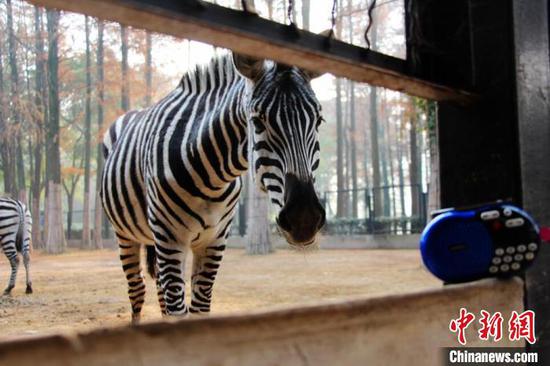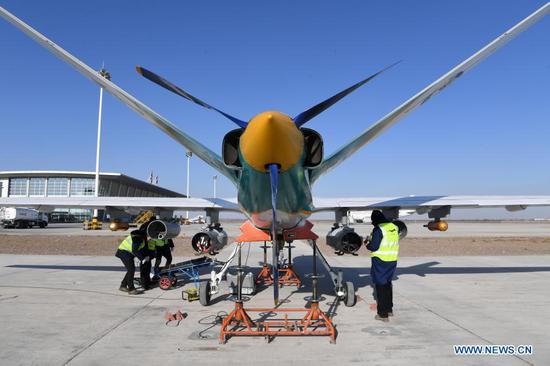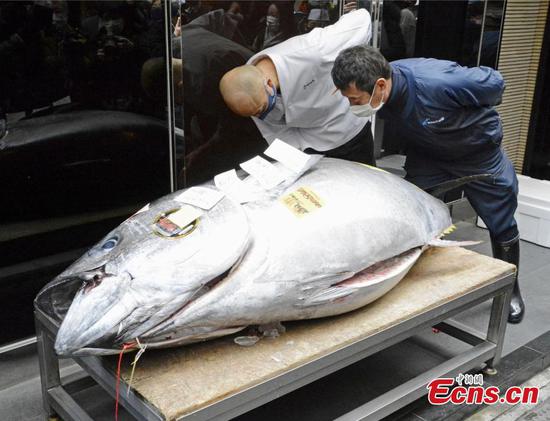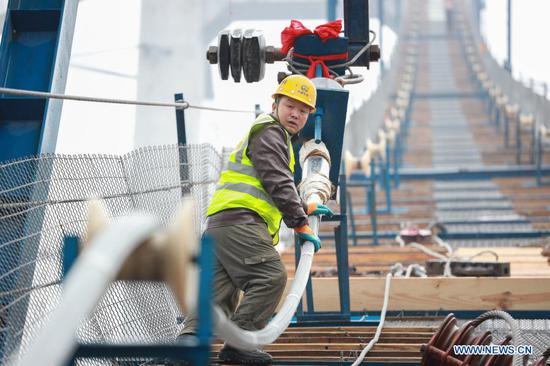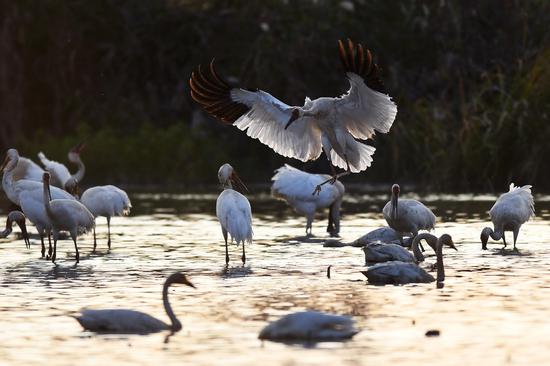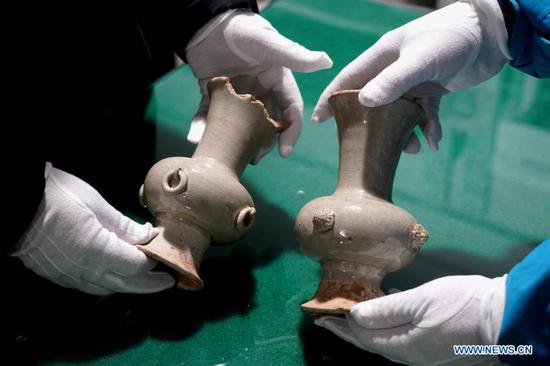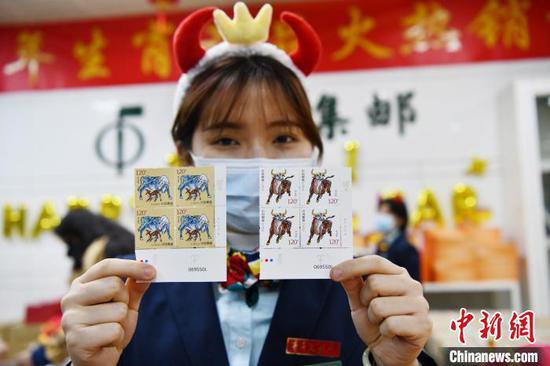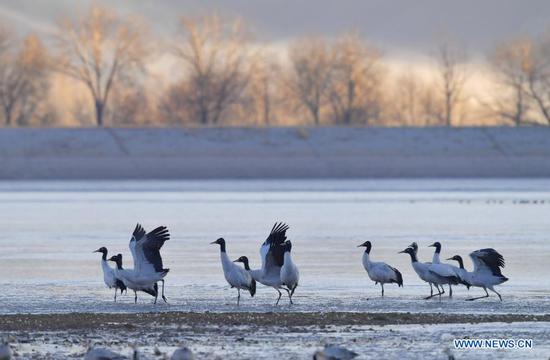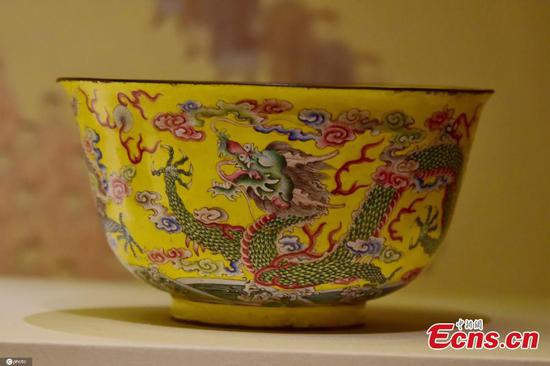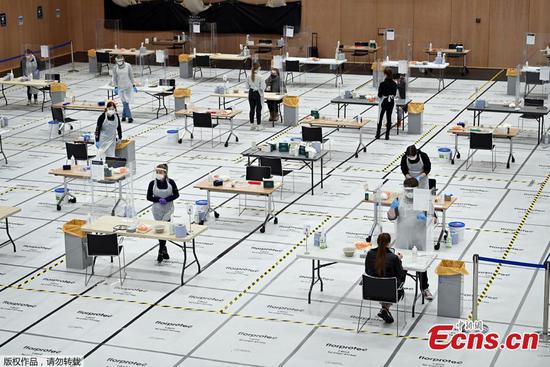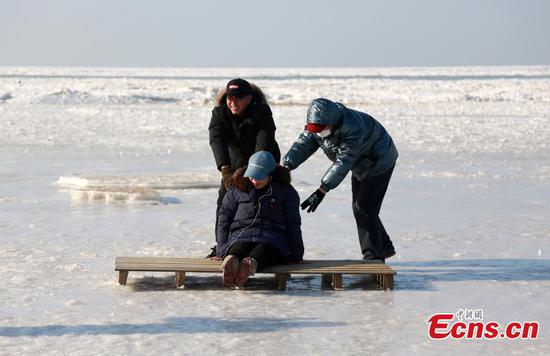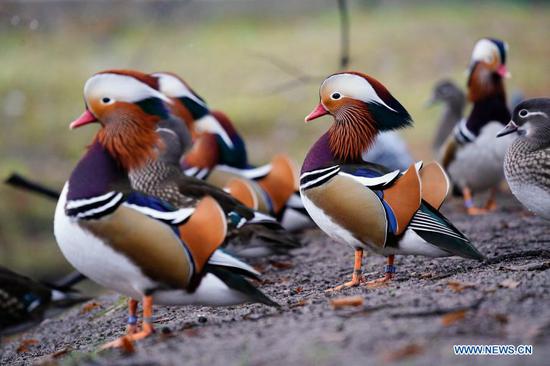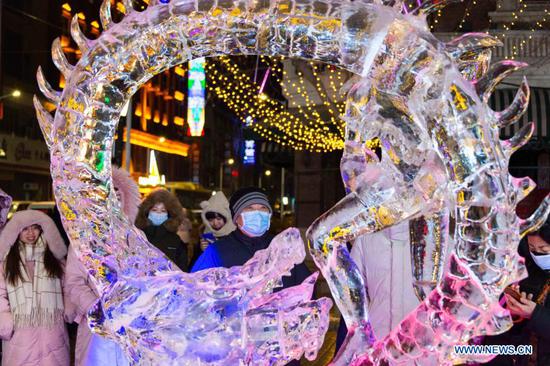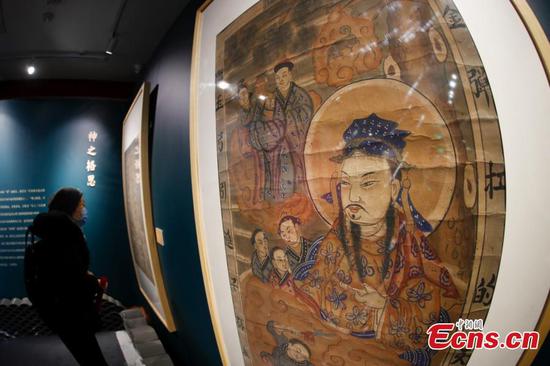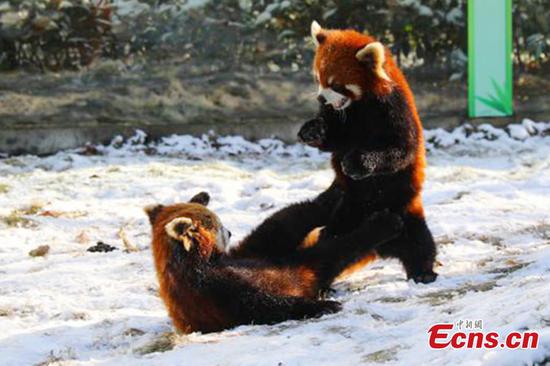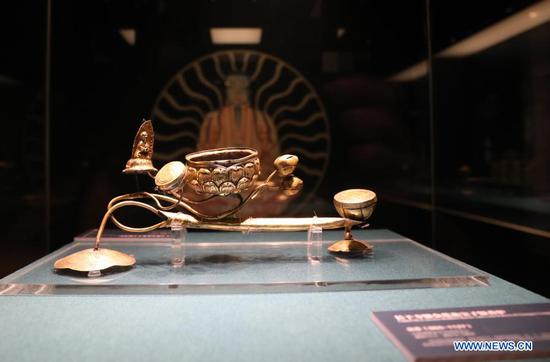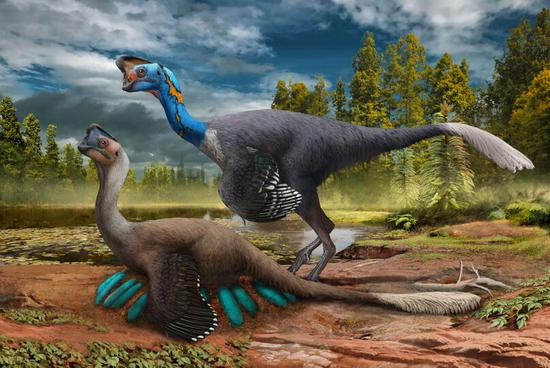
Simulated image shows how dinosaurs incubate. (Photo provided by Yunnan University and the Institute of Vertebrate Paleontology and Paleoanthropology under the Chinese Academy of Sciences)
A group of rare incubating dinosaur fossils has been unearthed in east China's Jiangxi Province, shedding light on reproductive research related to theropod dinosaurs.
The fossils, dating back about 70 million years, were found with an adult skeleton, embryos and an egg nest intact. Believably, the two-meter-long dinosaur was lying prostrate atop a clutch of embryo-bearing eggs for incubation in the same manner as modern birds.
The fossils not only show the hatching posture of the dinosaur but also preserve the embryos, providing the latest evidence for understanding the hatching behavior of theropod dinosaurs, said Bi Shundong with Yunnan University, first author of the research.
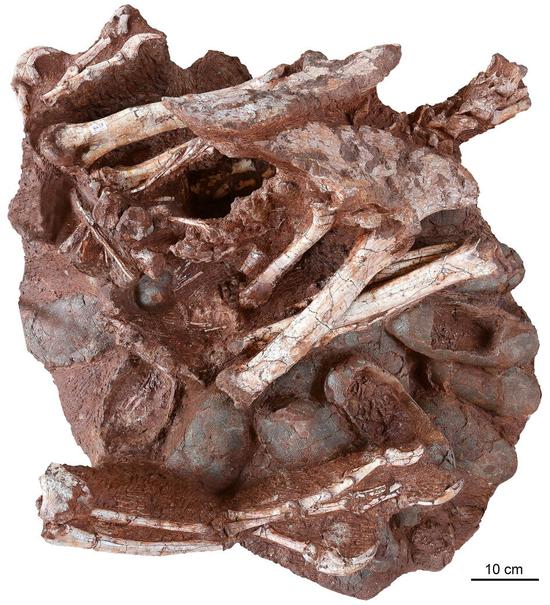
The researchers also found that the embryos in the clutch are at different developing stages, suggesting the presence of asynchronous hatching, an advanced reproductive pattern among modern birds, in non-avian theropods, according to Xu Xing with the Institute of Vertebrate Paleontology and Paleoanthropology under the Chinese Academy of Sciences, one of the authors of the study. The study has been published in the journal Science Bulletin.









